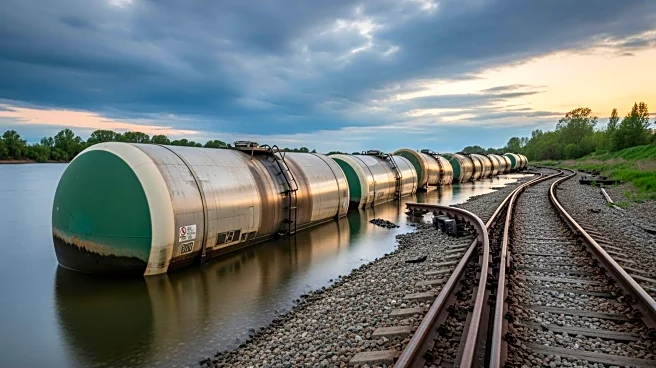Rapid Read • 7 min read
Microbes isolated from Siberian permafrost have been found to survive for over 100,000 years, according to DNA analysis. These microbes, belonging to the phylum Promethearchaeota, are considered close relatives of eukaryotes, which include animals and plants. The study, conducted by researchers including Karen Lloyd from the University of Southern California, involved drilling into the permafrost to extract DNA samples. The findings suggest that these microbes have maintained their DNA integrity over millennia, possibly due to protein repair genes. This discovery provides insights into microbial survival in extreme conditions and their evolutionary history.
AD
The ability of these microbes to survive for such extended periods has significant implications for understanding the resilience and adaptability of life forms. It challenges existing notions of microbial longevity and could influence studies on the origins of complex life. The research may also impact fields such as astrobiology, where scientists explore the potential for life in extreme environments beyond Earth. Understanding these mechanisms could lead to advancements in biotechnology and environmental science, particularly in areas related to climate change and microbial ecology.
Further research is needed to explore the genetic and biochemical mechanisms that enable these microbes to survive in frozen conditions. Scientists may investigate similar microbial communities in other extreme environments to compare survival strategies. This could lead to new insights into microbial evolution and the development of technologies that harness these survival traits for industrial or environmental applications.
The study raises ethical and philosophical questions about the definition of life and its persistence over time. It also highlights the importance of preserving natural environments like permafrost, which serve as reservoirs of ancient biological information. The findings could influence policies on climate change and conservation, emphasizing the interconnectedness of life and the environment.
AD
More Stories You Might Enjoy













